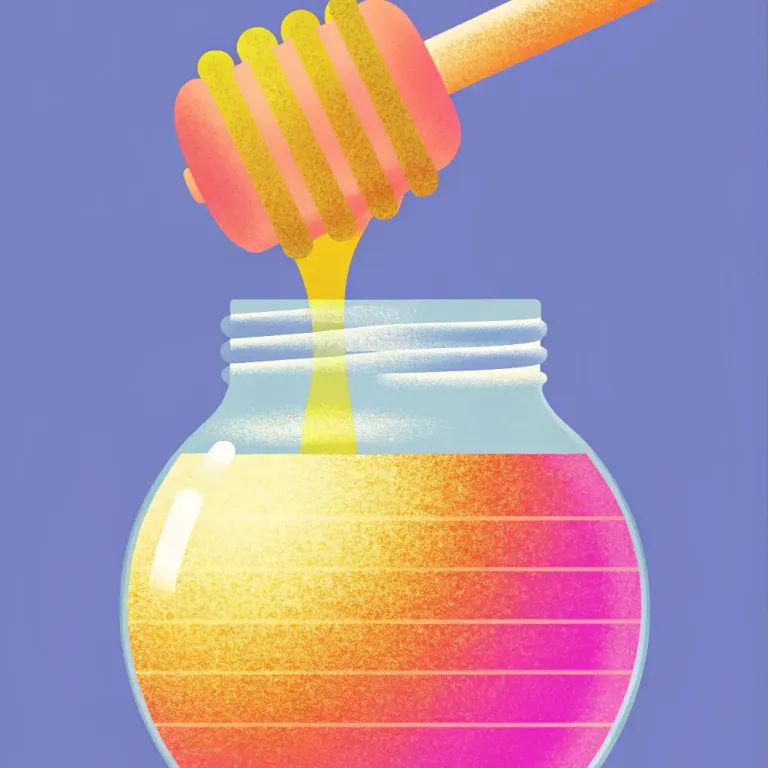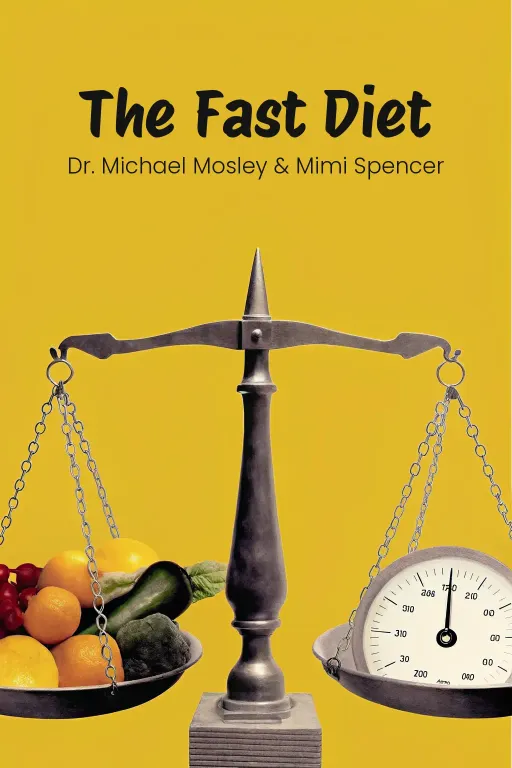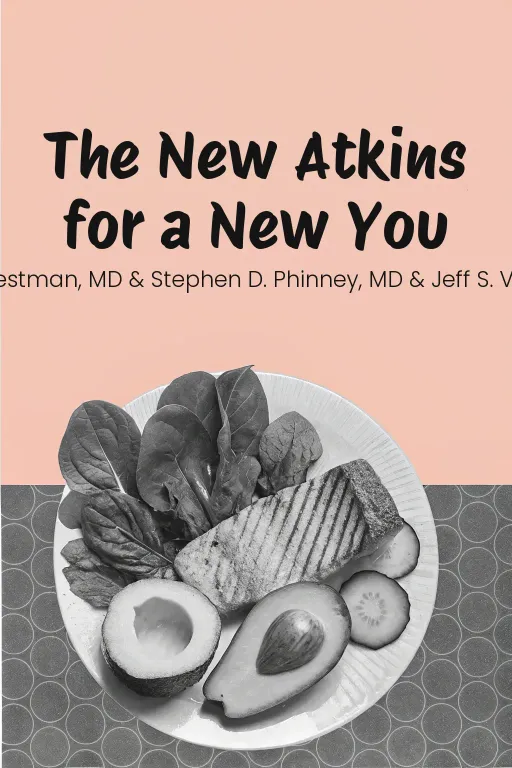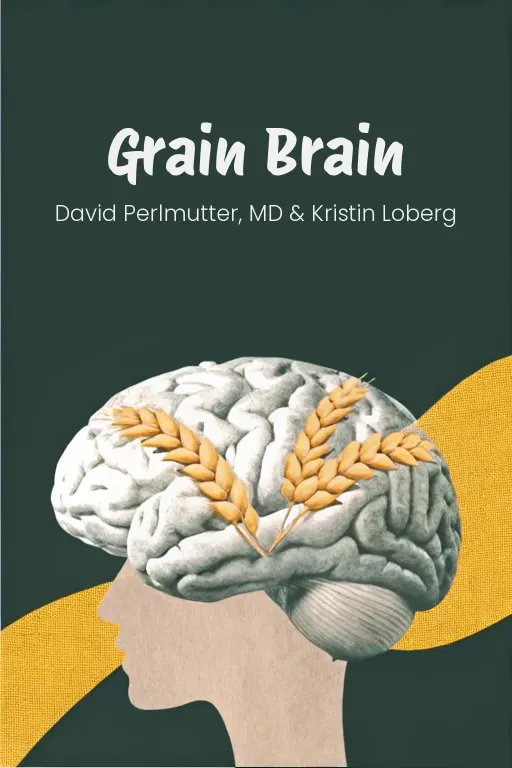
Tame Your Glucose: Hack Your Way to Better Health
Podcast by Beta You with Alex and Michelle
The Life-Changing Power of Balancing Your Blood Sugar
Tame Your Glucose: Hack Your Way to Better Health
Part 1
Alex: Hey everyone, welcome back! Today, we're diving into something that's absolutely key to just about everything: glucose. I mean, it affects your energy, your mood, you name it. Michelle: Glucose, huh? Okay, are we about to start singing the praises of sugar? Because, I gotta say, I'm already a little skeptical. Alex: Not exactly! Look, glucose is essential. It's the fuel that keeps your brain firing and your muscles moving. But here's the thing: too much or too little, and boom, everything can go haywire. We're talking about energy crashes, cravings that feel impossible to resist, and down the line, potentially even chronic diseases and hormonal imbalances. Michelle: So, it's like that one “really” temperamental coworker. Vital to the team, but also totally unpredictable and capable of causing chaos? Alex: Precisely! And that's where our inspiration for today comes in. We're unpacking a book that really breaks down how glucose impacts your body and mind. It really stresses the importance of keeping things stable, and it offers some super practical hacks for managing it. You know, things like smart food choices, how you sequence your meals, and just generally, real-world strategies that can actually make a difference. Michelle: Alright, so far, I'm getting the sense that I might need to start managing my glucose levels, instead of letting them manage me. So, what's on the agenda for us today? Alex: We're going to chew on glucose management through three key insights. First, we'll look at how glucose powers us, but also how it can disrupt our systems. Second, we'll go over some simple, actionable hacks you can use to really stabilize those levels, like tweaking what's on your plate and also how you eat it. And finally, we'll talk about the ripple effect – how taming those glucose spikes can really transform both your mental clarity and your physical wellbeing. Michelle: Sounds like we're fine-tuning an engine here. But hopefully with less motor oil and more... fiber? Alex: Perfect analogy! Let's get started, shall we?
Understanding Glucose and Its Impact on Health
Part 2
Alex: Okay, so let's dive in. Glucose is basically the fuel that keeps our bodies running, right? Every cell uses it. We get it from breaking down carbs. So, it's super important for everything from thinking to moving. Michelle: Right, glucose: the MVP of energy. But if it’s “so” vital, why does it get such a bad rap? All I ever hear is how sugar is the devil. Alex: That's a great question. It's not the glucose itself that's the problem, it's how we manage it. The trouble starts when we overload our systems with too much, too fast. Imagine you grab a sugary donut or a plain bagel first thing. Your blood sugar skyrockets, your body dumps a ton of insulin to bring it down, and then—boom!—you crash. You're tired, grumpy, and craving carbs again. Michelle: So, it's like pouring jet fuel into a regular car. You get a quick burst, but then everything falls apart? Alex: Exactly! And if that happens repeatedly, especially over years, it can lead to insulin resistance. That's when your cells stop responding to insulin properly, so glucose just hangs out in your bloodstream. Your pancreas then has to work even harder, creating this vicious cycle that can lead to type 2 diabetes, heart disease, even Alzheimer's. Michelle: Okay, so the engine not only stalls, but it starts actively damaging the vehicle. Got it. But what is insulin, anyway? You keep bringing it up like it’s glucose’s trusty sidekick. Alex: More like its personal driver. Insulin is the hormone that escorts glucose from your blood and into your cells. The cells then use the glucose for energy, or store it for later. The problem is, when you're constantly flooding your system with glucose, insulin gets overworked. Excess insulin can even damage your blood vessels, causing things like atherosclerosis. You know, plaque buildup in the arteries. Michelle: So, with every bag of chips and candy, I'm not just irritating my pancreas, I'm also messing with my heart. Wonderful. Alex: But, there's good news! Understanding all this means you can actually take control. Small changes can really stabilize your glucose levels and avoid all that chaos. Take Fatemeh, from the book, for example. She dropped her fasting blood glucose from 200 to 110 mg/dL in just four months. That’s a significant change. Michelle: Hang on…200? That sounds... intense. Alex: It is! A fasting glucose of 200 is definitely in the diabetic range. But this shows that dietary and lifestyle changes can be incredibly effective. She focused on things like how she sequenced her meals, eating fiber and protein first, then carbs. She basically taught her body to process glucose more steadily. Michelle: So instead of the sugary fuel first, she started with, like, a spinach salad? Speaking of, why is fiber suddenly everyone’s favorite word? Alex: Fiber’s fantastic because it slows down digestion. It's not broken down into glucose like starches or sugars, so it helps smooth out the rise in blood sugar. Imagine eating a piece of bread alone. It's like unleashing a flood of glucose into your system. But if you eat it with a fiber-rich salad, the fiber acts as a buffer, turning that flood into a manageable trickle. Michelle: So, fiber’s the responsible adult holding the kid's hand as they cross the street—keeping things controlled? Alex: Exactly! It also feeds the good bacteria in your gut, which affects glucose metabolism. And speaking of metabolism, let's briefly discuss fructose. Because not all sugars are created equal, right? What's in fruit versus high-fructose corn syrup affects your body differently. Michelle: Ah, the great fructose debate. I knew soda wasn’t good, but what makes high-fructose corn syrup so awful? Alex: Unlike glucose, which every cell uses, fructose is metabolized mostly in the liver. Too much fructose—like in soda or candy—overwhelms the liver, leading to fat buildup and inflammation. Over time, that can lead to non-alcoholic fatty liver disease and contribute to insulin resistance. Michelle: So, drinking soda is like piling all the work onto one department in the office—it'll eventually crack under the strain. Alex: Precisely. And we're not saying to ditch fruit completely! The fiber in fruit slows down the sugar absorption, so a banana won't overwhelm your liver like a soda will. Michelle: Got it—fiber is the unsung hero again. But what about the mental health aspect? You mentioned mood swings and clarity earlier. How does glucose play into that? Alex: It’s all connected. When your blood sugar crashes after a spike, your brain doesn't get a steady glucose supply. That's why you feel tired, irritable, or even anxious after a sugary snack. Chronic spikes and crashes can disrupt this balance long-term, and are even linked to higher risks of depression and cognitive decline. Michelle: So, a sugar crash isn’t just annoying in the moment—it's setting you up for potentially bigger problems down the road. Alex: Exactly! That’s why stabilizing glucose is about more than just weight or energy. It’s about protecting your physical and mental health.
Practical Strategies for Glucose Management
Part 3
Alex: Okay, Michelle, now that we understand how glucose works, let's get practical. How do we take this scientific understanding and actually use it to manage our glucose levels effectively in our daily lives? Michelle: Exactly. We've got the theory down, but how do we bridge that gap to real-world application? How do we make these changes without completely upending everything? Alex: That's the goal, right? Actionable steps, sustainable changes, not some crazy diet overhaul. So, let's dive in. Michelle: Alright, let's hear it. What's the first—and hopefully easiest—hack to get us started? Alex: It's all about meal sequencing. Basically, the order in which you eat your food. Super simple: start with veggies or fiber, then your proteins and fats, and save the carbs for last. Michelle: So, you're structuring your meal like a concert – opening act, headliner, and then the encore? Alex: Well, that’s one way to think of it! And there's solid science behind it. A Cornell study actually showed that this sequence can lower post-meal glucose spikes by up to 73%. The fiber acts as a buffer, slowing down carb absorption into your bloodstream. Michelle: So the carbs get the VIP treatment – a slow entrance instead of a chaotic rush that causes… mayhem? Alex: Precisely! And here's a great example: Bernadette, from the GLUCOSE GODDESS community, struggled with weight gain and fatigue. Simply by starting her meals with a veggie-loaded salad, instead of bread, she lost five pounds in nine days and felt much more energetic. Pretty simple, pretty effective, right? Michelle: Wait a second...Five pounds in nine days just from changing the order of eating? That does sound a bit…magical. Alex: Not magic, Michelle, it's just biology! When your body doesn't have to overproduce insulin to cope with those sudden glucose surges, things like fat storage calm down, and your energy metabolism just works better. Michelle: Okay, so salads lead the way. But, would it work if I just skip the salad completely and add fiber to whatever I'm eating? Would that be enough? Alex: Absolutely, that's hack number two: prioritizing fiber. Incorporating fiber-rich foods at the start of your meal, like spinach, beans, or cucumbers, helps manage glucose, whether you're sticking to the food sequence thing or not. You could think of it as giving your digestion a little head start. Michelle: Okay, so a pre-game fiber snack. Got it. Alex: Exactly. And the benefits extend beyond glucose. A Duke University study showed that increasing dietary fiber over six months reduced participants' insulin levels by 50%. Plus, they reported feeling fuller and more energetic. Michelle: Okay, fiber makes you full, keeps glucose levels stable, and gives insulin a break. But what about snacks? I think that's where most people, including myself, tend to struggle. Alex: Oh, you’re not wrong. It's so tempting to reach for quick sugary, processed snacks like candy bars for that instant energy boost. But all they do is cause a huge glucose spike, followed by a crash that leaves you feeling even worse. Michelle: Right, it’s like fueling a fire with gasoline – a quick burst that burns out fast, isn't it? Alex: Exactly. The better solution? Savory snacks. Things that combine protein, fats, and fiber. Hummus with carrots, nuts, even cheese and whole-grain crackers. This combo gives you a slower, more sustained energy release, and keeps your glucose levels steady. Michelle: Wasn't there a story about Gustavo that kind of fits in here? Alex: Yes, Gustavo is a long-distance driver. And he used to rely on candy bars and energy drinks to stay alert. But predictably, he would just crash hard in the afternoon. Once he switched to having veggies with peanut butter or mixed nuts, everything shifted—better focus, less fatigue, and he even noticed fewer overall cravings. Michelle: Very practical and tasty. We’ve covered the sugar, but what about carbs? Because let's face it, bread isn’t disappearing. How do we deal with that? Alex: That’s where “putting clothes on your carbs” comes in. Michelle: Please tell me that isn’t a literal thing. Alex: No, no, it's not! It just means pairing carbohydrate-rich foods with protein, fats, or fiber. Instead of plain oatmeal, try adding Greek yogurt and chia seeds. Or top your toast with avocado and a boiled egg. These combinations help to blunt the glucose spike from the carbs by slowing down digestion. Michelle: So, carbs get dressed up to behave better—kind of like putting unruly teenagers in tuxedos to calm them down? Alex: Exactly. And it really does work. Lucy, a heptathlete, used to struggle with energy crashes from high-carb snacks before training. Once she started pairing those carbs with protein—like eggs with rice cakes, or almond butter with fruit—her energy stabilized, and she performed much better. Michelle: So athletes aren't just fueling their workouts – they're secretly glucose-managing pros? Alex: Exactly! And honestly, anyone can benefit from it. Michelle: Yeah, but let's be honest – desserts are the real test here. What do we do with those beloved sugar bombs? Alex: Simple! Enjoy dessert as part of a meal, not on its own. Michelle: Wait, are you saying that I can still have my slice of cake, just as long as it's not the main event? Alex: Exactly! When dessert comes after a balanced meal, with fiber and protein, the glucose spike is much less dramatic because everything digests much more gradually. Take Ghadeer as an example. She loved chocolate but worried about her insulin resistance. By saving her treats for after lunch or dinner, she avoided the crashes and the guilt she used to feel. Michelle: So, dessert isn't banned; it's just playing a supporting role instead of being the star. Alex: And isn’t that a much healthier way to enjoy it? Slightly sarcastic tone Michelle: No complaints here! But what about exercise? You hinted that physical activity could help manage glucose levels also. Alex: Absolutely! Even something as simple as a ten-minute walk after meals can lower post-meal glucose spikes by up to 27%. When you move, your muscles absorb glucose from the bloodstream as fuel, reducing the spike naturally. Michelle: So Khaled’s evening strolls with his family were actually doing more than just improving digestion? Alex: Exactly! By the way, they stabilized his glucose levels, also turning family time into a healthy ritual. Small habits like this show how accessible these hacks really are. Movement doesn’t have to mean hitting the gym—being active is enough. Michelle: Got it. Let me see if I’ve got the picture right: structured meals, fiber, savory snacks, dressed-up carbs, strategic desserts, and post-meal movement. These strategies sound not only logical but also…actually doable. Alex: That’s what's so great about it! Simple yet transformative. By implementing even just one or two of these, people can see real changes in their energy levels, moods, and long-term health. That's “really” the power of managing your glucose.
Broader Impacts of Glucose Regulation
Part 4
Alex: Stepping back a bit from individual habits, let's explore how glucose regulation affects our broader health and well-being. It's not just about your diet, but how keeping your glucose levels steady creates positive changes in your mental, physical, and even hormonal health. This expands our view, highlighting how glucose management goes beyond just diet, touching on holistic health and personal growth. Michelle: So we're zooming out for a wider perspective, right? We’ve discussed the tips and tweaks, but what's the bigger picture here? How does managing glucose contribute to making us happier and healthier overall? Alex: Exactly. Let's start with mental health. We all know the brain needs a steady glucose supply, but most people don't realize how sensitive it is to glucose fluctuations. Those spikes and crashes we’ve talked about can “really” mess with your mood, cognitive clarity, and emotional resilience. Michelle: Makes sense. I know I’ve made some pretty bad decisions when I’m hangry. But beyond just occasional irritability, are we talking about more serious mental shifts? Alex: Absolutely. Take, for instance, the case of Lucy, a young woman with type 1 diabetes who struggled with extreme mood swings because her glucose levels were all over the place. Her blood sugar would shoot up to dangerous levels—like 300 mg/dL—after breakfast, leading to fatigue, irritability, and strained relationships with her family. It wasn't just about feeling bad in the moment; it affected her relationships and how in control she felt. Michelle: 300? Wow, that definitely gets your attention. How did she manage to turn things around? Alex: By making some simple but smart changes. Reorganizing her meals to start with fiber and protein before carbs completely changed her health. Her HbA1c—which is basically a long-term blood sugar health marker—went from 7.4% to 5.1% in just three months. And the best part? Her emotional stability improved a lot. She started feeling present in her relationships, something she hadn't felt in years. Michelle: That's incredible. So by stabilizing her glucose levels, she not only improved her physical health, but she also regained her emotional bandwidth. Alex: Exactly. And this isn’t just a one-off case. Studies consistently show that diets high in refined sugar are linked to higher risks of depression and anxiety. While diets rich in fiber and whole foods are linked to better mood regulation and sharper cognitive function. It’s like building a solid emotional foundation. When your glucose is stable, your mind tends to follow. Michelle: Okay, but what about the serious stuff—chronic diseases? What are the long-term stakes here? Alex: Uncontrolled glucose basically sets you up for a lifelong battle with chronic conditions like diabetes, heart disease, and even certain cancers. Let’s consider Fatemeh's story. She had type 2 diabetes for over 16 years, with fasting glucose levels at a dangerous 200. Her health was declining, but after she started focusing on glucose management—fiber first, watching her carbs—her fasting glucose dropped to 110 within four months. That’s not just an improvement; that’s a reversal. Michelle: So, in a way, she rewrote her medical history with her food choices. That’s a “real” game-changer. Alex: It “really” is. And it’s not just about diabetes. Think about heart health. Glucose spikes create these small LDL cholesterol particles—which you can think of as the villains of cardiovascular health. These particles are more likely to stick to the walls of your arteries, which leads to plaque buildup and inflammation. Over time, this can lead to atherosclerosis and increase your risk of heart attacks or strokes. Michelle: Sounds like glucose isn’t just messing up your day-to-day life; it’s quietly undermining your long-term health. What about hormones? I know you’ve mentioned PCOS and fertility before. Alex: Hormonal health is another crucial area. Elevated insulin, often caused by glucose spikes, directly disrupts hormone regulation in conditions like PCOS. Take Heather, for instance, who struggled with acne, weight gain, and infertility for two years. Her life changed when she started managing her glucose. By focusing on balanced meals—fiber before carbs, avoiding sugary breakfasts—she lost weight, her skin cleared up, and, most importantly, she started ovulating regularly again. Michelle: So glucose isn’t just messing with internal systems; it’s also impacting major life events, like the ability to have children. Alex: Exactly. And there's more. Keeping glucose stable also helps your neurological health. High glucose levels can damage brain cells, speed up oxidative stress, and increase the risk of conditions like Alzheimer’s, which is sometimes called “type 3 diabetes” because it's linked to impaired glucose metabolism in the brain. When glucose levels are steady, you get better cognitive clarity, focus, and long-term brain health. Michelle: There’s a lot riding on this, isn’t there? Mental health, physical resilience, hormonal balance—it’s all connected. And we haven’t even talked about gut health yet. Alex: That's a great point. New research shows that glucose stability is key to a healthy gut microbiome. Glucose fluctuations can worsen conditions like leaky gut, which leads to systemic inflammation and can even cause autoimmune diseases. A balanced glucose approach supports the intestinal lining and keeps the good bacteria in our gut happy. Annalaura's story is a perfect example—after focusing on glucose-stabilizing strategies for two months, she not only lost weight but also saw her migraines improve and her energy levels go up. Michelle: So, from your gut to your brain, glucose seems to be the common thread linking so many aspects of our health. Alex: Precisely. Stable glucose is transformative—it’s not just about numbers on a chart, but about feeling energized, emotionally stable, and physically capable. The effects go far beyond just food, influencing building a healthier, more fulfilling life.
Conclusion
Part 5
Alex: Okay, so to bring it all together, we really unpacked a lot today, didn't we? Glucose is essentially the body's go-to fuel, but the real magic is keeping those glucose levels nice and steady. We talked about how glucose spikes can mess with everything—energy levels, cravings, and even lead to serious stuff down the road, like diabetes, heart issues, and even impact mood and mental well-being. Michelle: Right, and the good news is, you don't need a PhD to fix it. Little tweaks—veggies first, pairing carbs, a quick walk after eating—simple stuff that puts you back in the driver's seat. Alex: Totally. And it's not just about physical health. Stable glucose? It's like a domino effect. Think clearer thinking, better mood, and reduced risks of things like heart disease and PCOS longer term. The evidence is pretty compelling—small, consistent changes can make a big difference. Michelle: So, the challenge is on, then. Time to get a little nosy about your own glucose habits. Try one little hack this week— fiber first, move a little, ditch the sweet stuff now and then. Trust me, your body will send you a thank-you note. Alex: Exactly! I don't think I could have put it better myself. Thanks for tuning in and geeking out with us on glucose. Small changes, big impact—that's the motto. See you next time! Michelle: That's right. Until then, go easy on the sugar, folks!









